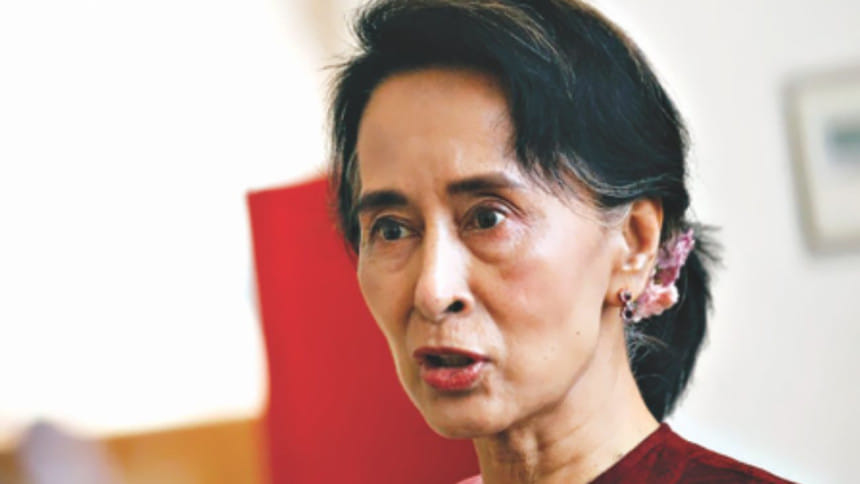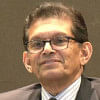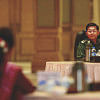Suu Kyi won't attend key UN summit

Myanmar's de facto leader Aung San Suu Kyi, who faces global outrage over violence that has forced about 4,00,000 Rohingyas to flee to Bangladesh, cancelled a trip to the upcoming UN General Assembly “because of the crisis”.
The exodus of refugees, sparked by the fierce military response to a series of Rohingya militant attacks, is the most pressing problem for Suu Kyi since becoming her leader last year.
Critics have called for her to be stripped of her Nobel Peace Prize for failing to do more to halt the strife which the UN rights agency said was a "textbook example of ethnic cleansing".
Suu Kyi, in her first address to the UN General Assembly as leader in September last year, defended her government's efforts to resolve the crisis over treatment of the minority.
This year, she cancelled her trip to New York because of the security threats posed by the insurgents and the need to restore stability, Zaw Htay, spokesman for Suu Kyi's office, told a media briefing yesterday.
"She is concentrating on establishing stability," the spokesman said, adding that preventing any spread of communal violence was a priority and Suu Kyi would address the nation on reconciliation and peace next Tuesday.
International pressure has been growing on Myanmar to end the violence in the western state of Rakhine that began on Aug 25 when militants attacked 30 police posts and an army camp.
The raids triggered a sweeping military counter-offensive against the insurgents, whom the government labels terrorists. Refugees say the offensive is aimed at pushing Rohingyas out of Myanmar.
Numerous Rohingya villages in the north of Rakhine have been torched but authorities have denied that security forces or Buddhist civilians have been setting the fires. Instead, they blame the insurgents.
Zaw Htay said 176 Rohingya villages are now empty after all of their residents fled during recent violence.
In the latest violence reported by the government, the insurgents attacked and burned three police posts in the north of Rakhine on Tuesday. There were no reports of casualties.
Myanmar's president office says a committee has been formed to implement the Kofi Annan Commission recommendations for improving the security and livelihoods of its ethnic Rohingya minority, adds AP.
The president's office said in a statement Tuesday that the new 15-member Implementation Committee of Rakhine Advisory Committee would work on improving security, economic development and social affairs in Rohingya areas, as well as maintaining the sustainability of ethnic villages and removing camps for the displaced.
It said the committee would also work to speed progress on verifying the Rohingyas under the country's citizenship laws so they can be recognised as citizens.
Myanmar's military, which ruled for almost 50 years until it began a transition to democracy in 2011, still retains significant political powers and has full control of security.
Nevertheless, critics say Suu Kyi could speak out against the violence and demand respect for the rule of law.
Suu Kyi, whom the military blocked from becoming president and who says Myanmar is at the beginning of the road to democracy, could risk being denounced as unpatriotic if she were seen to be criticising a military operation that enjoys widespread support.
Zaw Htay said the government had information about plots to launch attacks, although he did not elaborate, except to say security was being tightened in cities.
Those fears will be compounded by an al-Qaeda call to arms in support of the Rohingya.
"The savage treatment meted out to our Muslim brothers ... shall not pass without punishment," al-Qaeda said in a statement, the SITE monitoring group said.

 For all latest news, follow The Daily Star's Google News channel.
For all latest news, follow The Daily Star's Google News channel. 








Comments